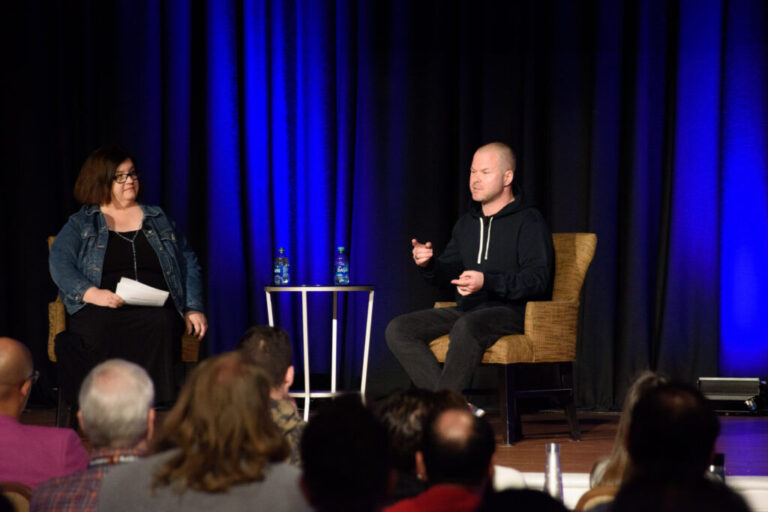What if you could just do what you love and what you're best at when building your content business?
It feels like a dream.
Yet this strategy is what helped Justin Welsh make $7 million in revenue in five years, with a 90% return.
Earlier this month, Justin spoke to an audience at CEX to share his thoughts on his journey to becoming a highly successful “accidental” content entrepreneur. I say “accidental” because Justin started creating content as a marketing tool for his new personal consulting business, and eventually launched his own content business.
Many entrepreneurs start their journey by creating a business plan based on an existing template or outline they find on the internet. They list out everything that needs to be done and add milestones that need to be achieved. They choose the technology they'll use and the platform they'll run it on.
They start executing their business plan and then realize they don't want to do half the things there are to do.
Justin had other ideas.
Let’s start with this question: What does a perfect day look like?
It's not just a philosophical exercise: it's good business.
After all, if you're like most content entrepreneurs, your primary motivation for starting a business probably isn't to make more money. According to Tilt research, money is only the seventh most common motivator for starting a content business. Enjoying your work (83%), independence (79%), flexible hours (77%), pursuing your passion (71%), challenging yourself (60%) and choosing where you live (50%) all rank higher than making more money than a traditional job (39%).
Justin and Jennifer Welsh made a list of everything that would happen on their perfect day between 6am and 8pm, from creative pursuits to catching up with friends. They then rearranged the list into a daily sequence.
And they asked, “So what is it that drains our energy?”
Among the items on Justin's list are conference calls and video appearances.
The answers helped him develop a business plan that aligned with what he wanted to do and minimized or eliminated what he didn't want to do.
But you can't just say you don't want to do something – you need to think about an alternative. Justin didn't want to be on YouTube, so he thought about written content, and The Saturday Solopreneur newsletter was born.
Still, there were things Justin didn't like about the newsletter. He didn't want to write a really long newsletter, so he kept it short. The weekly newsletter takes less than four minutes to read. And he doesn't like lofty theories, so The Saturday Solpreneur is practical and tactical, allowing readers to learn one thing each week.
“That made it easier. It was like, 'OK, I can send this.'
He did, and people appreciated it, and five years later, The Saturday Solopreneur has over 250,000 free subscribers.
However, Justin is still in business, and as of this year, the multi-million dollar business has three main sources of income: online courses, monthly template subscribers, and sponsorships.
“I care about the bottom line. Let me be clear. Of course I care about the business doing well. I'm not Mother Teresa. I want the business to grow, but I don't want it to grow while doing something I don't want to do,” Justin says.
Living up to her high school nickname, “Editor Ann,” Ann regularly mixes words and strategies for B2B, B2C, and nonprofit organizations. As an IABC Communicator of the Year and founder of G-Force Communications, Ann coaches and trains professionals on all things content. Connect with her on LinkedIn. twitter.

